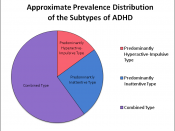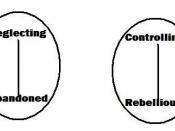Etiology of Cognitive Behavioral Therapy (CBT)
Cognitive behavioral treatment (CBT) of depression is a psychotherapeutic treatment approach that involves the application of specific, empirically supported strategies focused on changing negative thinking patterns and altering behavior. In order to alleviate the symptoms of depression, treatment is directed at the following three domains: cognition, behavioral and physiological. In the cognitive domain, patients learn to apply cognitive restructuring techniques so that negatively distorted thoughts underlying depression can be corrected, leading to more logical and adaptive thinking. Within the behavioral domain, techniques such as activity scheduling, social skills training and assertiveness training are used to remediate behavioral deficits that contribute to and maintain depression such as social withdrawal and loss of social reinforcement. Finally with in the physiological domain, patients with agitation and anxiety are taught to use imagery, mediation and relaxation procedures to calm their bodies (Beck, Rush, Shaw & Emery, 1979).
Process
Cognitive Behavioral Therapy combines the processes of cognitive therapy and behavioral therapy into one treatment.
Cognitive therapy teaches a client the connection between thought patterns, emotional state and behavior. Cognitive therapy encourages the client to change irrational and negative thinking patterns in order to alleviate the emotional symptoms that are caused by the thoughts. Behavioral therapy teaches the client how to change learned reactions that cause maladaptive behaviors. It is a common assumption that thoughts, and not external stimuli, directly cause emotions and behaviors and the cognitive part
of CBT concentrates on the client's thoughts. CBT helps the client identify negative and irrational thoughts and replace them with more rational and more positive thoughts. Automatic thoughts are often the most powerful in affecting our emotions and behaviors as they are the cognitive reactions to feared situations. Automatic thoughts breed assumptions and effect core beliefs. CBT targets negative and irrational beliefs...


